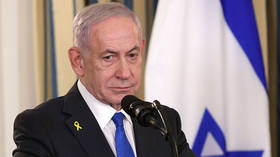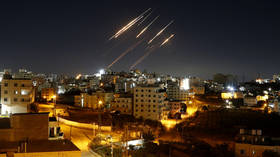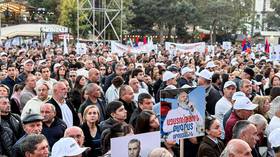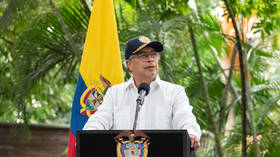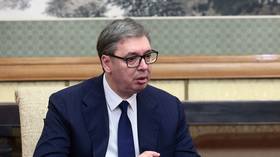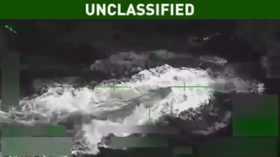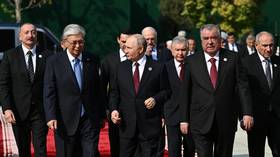Russia completes ground tests of new space rocket (VIDEO)
A successful ground test of the first-stage of the Souyz-5 rocket has concluded at a range in the Moscow Region, the Russian space agency Roscosmos has said.
The Soyuz-5 is a two-stage, medium-class launch vehicle with an increased payload capacity of up to 17 tons. It is intended as a replacement for the Proton and Zenit boosters. Roscosmos said previously that it plans to carry out the first test launch of the new rocket at the Baikonur Cosmodrome in Kazakhstan in December, with full-scale use expected to begin in 2028.
On Saturday, the Russian space agency released a video of the fire trails of the first stage of the Soyuz-5, which it said concluded the ground phase of the testing.
During the trials, the interaction between the first stage and the new RD-171MV engine was checked, the agency said in a statement. The engine boasts a thrust of 800 tons and remained operational for the intended 160 seconds, it added.
Roscosmos said previously that the designers had branded the RD-171MV the “Tsar-engine” due to it being most potent in the world and generating power comparable to that of a large power plant.
The results of the ground trials “allow for the commencement of flight and design tests of the Soyuz-5 launch vehicle,” the statement read.
The rocket is intended to deliver unmanned spacecraft into various near-Earth orbits under the joint Baiterek project between Russia and Kazakhstan, the agency said.
Last month, Roscosmos chief Dmitry Bakanov announced that Moscow plans to construct and launch some 1,000 spacecraft and 300 carrier rockets over the next decade as part of a national project to intensify the country’s space activities. This would see the number of launches doubling compared to the current pace, reaching up to 30 per year.




